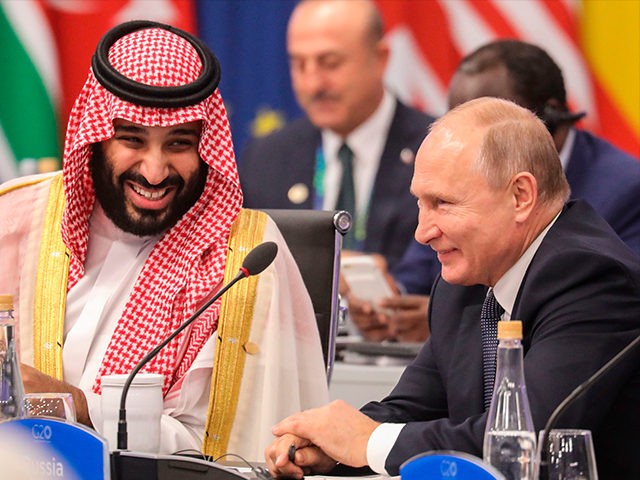A representative of the United States government stated Saturday that it would not help Saudi Arabia expand nuclear generation without ensuring that it would simplest be used for private functions.
Saudi Arabia has placed the U.S. On a shortlist with China, Russia, and others to bid for nuclear power tasks within the USA. Washington sees Saudi Arabia as a large American atomic expertise and hardware client. However, lawmakers from each U.S. Political party worry a deal will be based on strict controls.
Section 123 of the American Atomic Energy Act of 1954, titled “Cooperation With Other Nations,” sets an agreement for cooperation as a prerequisite for nuclear deals between the U.S. And some other kingdoms. Under a “123 measure,” any U.S. Nuclear deal with Saudi Arabia might limit routes toward making nuclear guns by banning uranium enrichment or reprocessing plutonium.
Speaking to CNBC’s Hadley Gamble at the Munich Security Conference on Saturday, U.S. Deputy Energy Secretary Dan Brouillette stated such an agreement became vital to any nuclear address in Riyadh.
“We won’t allow them to bypass 123 if they want civilian nuclear power that includes U.S. Nuclear technologies.”

The senior strength reputable said as international locations pursued extra environmentally pleasant and emissions-unfastened technology, nuclear had to be part of the communication. At the same time, as nations have to continue atomic electricity technologies, they should do so underneath a U.S. Regime that stops the proliferation of nuclear weapons.
“As you realize this era has a twin use, and in the wrong palms, it turns into a dangerous, risky global,” said Brouillette.
The Saudis have now refused to rule out their proper to enhance uranium for nuclear weapons, pointing to neighboring Iran’s potential to achieve this underneath the 2015 atomic settlement that world powers struck with Tehran.
In an interview in March on CBS’s “60 Minutes,” Saudi Crown Prince Mohammed bin Salman said the country wasn’t inquisitive about developing weapons but could increase nuclear functionality should Iran ever develop a working atomic bomb.
On Sunday, Saudi Arabian Prince Turki Al-Faisal responded immediately to Brouillette’s words, announcing the USA had more options than just the U.S. Generation.
“Well, the nuclear power marketplace is open. It is not just the United States supplying nuclear technology,” he instructed CNBC’s Hadley Gamble in Munich.
“We have France, we’ve got Russia, we’ve China. We have our buddies in Pakistan and in different places as properly, so if they need to dispose of themselves from that marketplace, it really is as much as them.”




